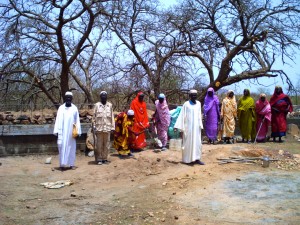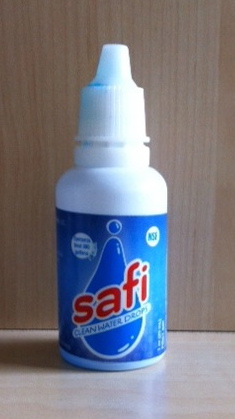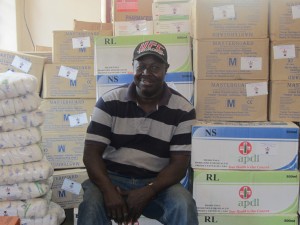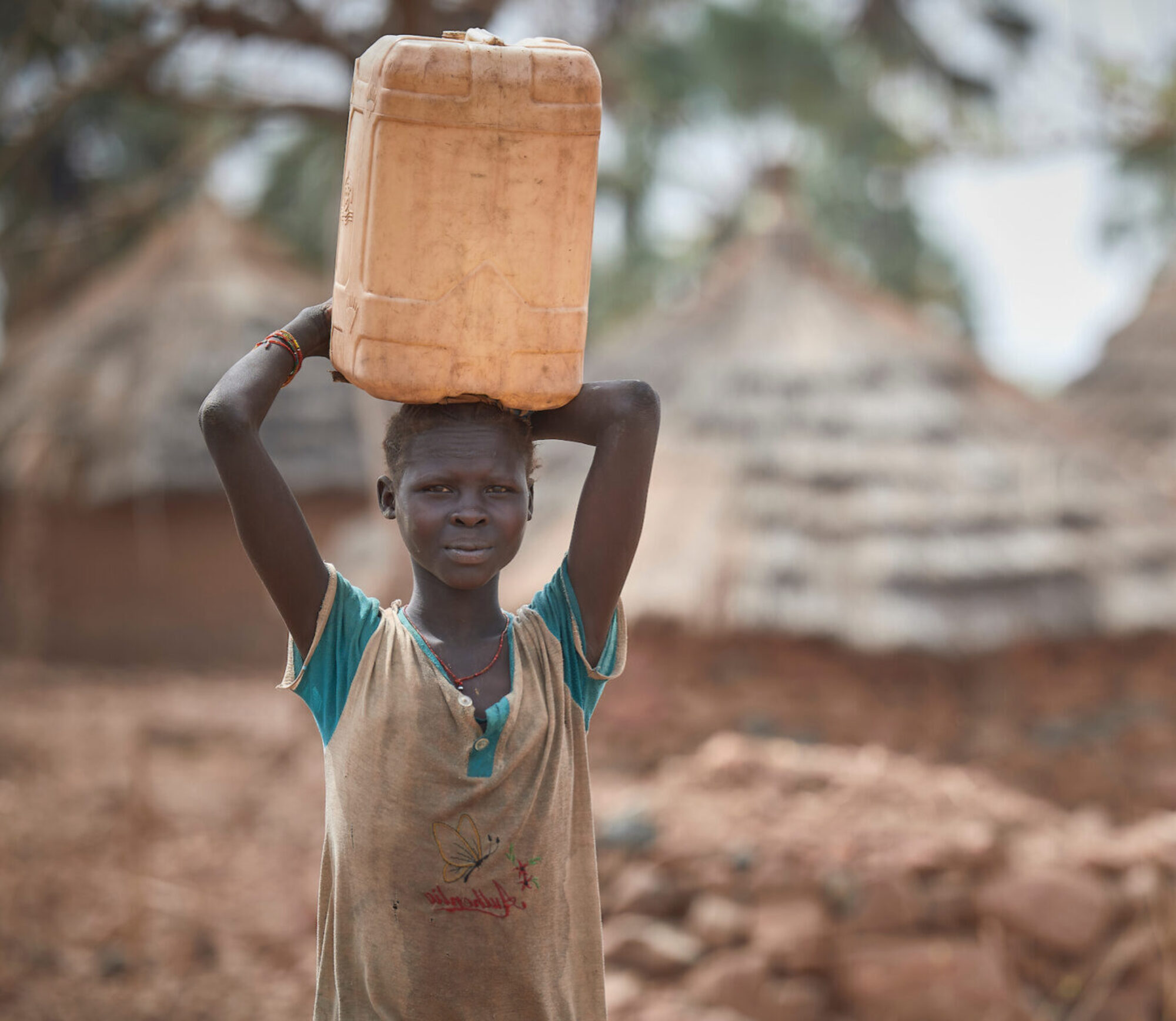BILO VILLAGE CATCHMENT DAM
A water-catchment dam in the remote village of Bilo is now able to collect rainwater during the rainy season so the women don’t have to walk up to three hours a day in search of water.
Government-sponsored attacks on the people living in the Nuba Mountains prevented us from further water infrastructure work. We turned our attention to much needed crisis relief. Two successful delivery projects took place from 2011 to 2013. See below for detailed information.
SAFI DROPS

One drop (1 oz) of Safi cleans one gallon of water for drinking and cleaning. This bottle costs just over $4 and can provide clean water for a family of six for almost one month. We currently send in small shipments with people traveling to Sudan. Safi has been delivered to Juba, Yida Refugee Camp, Equatoria, and the Nuba Mountains where it is being used very effectively.
2011 Walk for Sudan – “$10,000 Well-Spent”
 George Tuto returned safely to Denver after a three-month saga in Africa. His unfailing determination to help his people in the Nuba Mountains aided him in overcoming a multitude of obstacles and dangerous situations to deliver almost $20,000 of medicine, medical supplies, soap, and salt to areas where daily bombing still occurs.
George Tuto returned safely to Denver after a three-month saga in Africa. His unfailing determination to help his people in the Nuba Mountains aided him in overcoming a multitude of obstacles and dangerous situations to deliver almost $20,000 of medicine, medical supplies, soap, and salt to areas where daily bombing still occurs.


